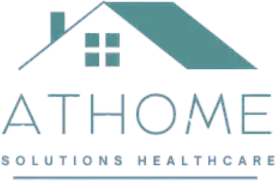Ensuring seniors take their medications correctly and on time is crucial for their overall health. Unfortunately, remembering doses and schedules can be challenging for elderly individuals, especially for those dealing with cognitive decline or complex medication routines. Implementing effective strategies for medication reminders can significantly improve a senior’s well-being, allowing them to maintain a consistent and safe regimen.
Why Are Medication Reminders Important for Seniors?
As seniors age, medical conditions often require regular medication. Medication adherence is crucial to avoid health complications, manage symptoms, and maintain overall well-being. Missed doses or incorrect timing can lead to:
- Adverse health effects such as worsening symptoms, increased hospitalizations, or even life-threatening conditions.
- Loss of treatment effectiveness, leading to prolonged illness or slower recovery.
- Confusion and stress for both seniors and their families.
These potential issues highlight the importance of having a structured system for medication reminders to help seniors stay on track.
Simple Ways to Manage Medication Reminders for Seniors
1. Use Pill Organizers
Pill organizers are a simple and effective way to manage medication reminders for seniors. By sorting pills into daily compartments, seniors can easily identify which medications to take and when. Weekly or monthly pill organizers can be helpful for seniors who struggle with remembering their routine.
2. Set Digital Reminders
Digital solutions like smartphone alarms or specialized medication reminder apps can be lifesavers. These tools provide audible or visual reminders that notify seniors when it’s time to take their medication. Caregivers or family members can set up these reminders and monitor adherence remotely.
3. Employ Home Health Aides for Medication Assistance
Home health aides play a vital role in ensuring seniors take their medication safely and consistently. They not only remind seniors about their medication schedules but also provide assistance in case of physical limitations or confusion. With their training and expertise, home health aides can offer peace of mind to families and support seniors in adhering to their medication routines.
Creating a Medication Routine: Key Tips for Success
Consistency is key to managing medication for seniors effectively. Establishing a reliable medication routine can make the process more manageable. Here are some strategies to consider:
1. Tie Medication to a Daily Activity
Associating medication intake with daily activities like meals, brushing teeth, or bedtime can help seniors remember when to take their doses. For example, taking morning pills with breakfast can create a consistent pattern.
2. Keep Medications in a Visible Location
Storing medications in a safe but visible location can serve as a visual cue. Placing them on the kitchen counter or bathroom shelf (out of children’s reach) can trigger a senior’s memory to take their dose at the right time.
3. Use Color-Coded Labels or Notes
Adding color-coded labels or sticky notes with instructions can simplify the process, especially for seniors with vision issues or cognitive decline. This visual aid helps differentiate medications and understand dosages better.
Benefits of Having Professional Medication Reminders
Hiring professional caregivers to handle medication reminders for seniors can be a game-changer. Here’s how they help:
1. Ensuring Safety
Medication management involves understanding dosages, possible interactions, and specific instructions. Professional caregivers are trained to prevent medication errors, ensuring that seniors follow the prescribed regimen safely.
2. Providing Consistency
Caregivers maintain a consistent schedule, reducing the likelihood of missed doses or double-dosing. Their presence creates a sense of accountability, helping seniors stick to their medication plans.
3. Offering Emotional Support
Seniors often feel anxious about taking multiple medications. Professional caregivers not only assist physically but also provide emotional reassurance, easing stress and building confidence in the process.
Overcoming Common Challenges in Medication Management
Even with the best systems in place, managing medication for seniors can be challenging. Here’s how to address some common issues:
1. Forgetfulness
Even with reminders, some seniors may forget their medication due to memory issues. In such cases, combining visual reminders (notes, labels) with audible alarms can increase effectiveness.
2. Resistance to Taking Medications
Seniors may refuse medication due to side effects or distrust. Involving a healthcare professional to explain the importance and potential side effects of each medication can help ease their concerns.
3. Complex Schedules
Some seniors may have complex medication routines involving different dosages at different times of the day. Professional caregivers can help manage these complexities, ensuring compliance and safety.
Effective Medication Management for Seniors
Medication management is crucial for seniors’ health and safety. By implementing structured reminder systems and seeking professional help, you can ensure that seniors follow their medication routines safely and effectively. Whether it’s through pill organizers, digital reminders, or professional home health aides, the goal is to support seniors in maintaining a healthy and independent life.
Explore how AtHome Solutions Healthcare can assist with medication reminders and other senior care services by visiting AtHome Solutions Healthcare.


